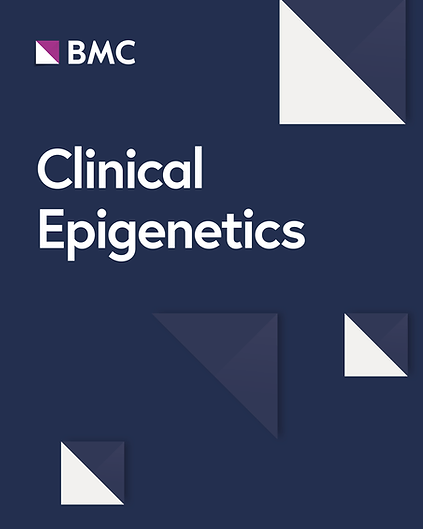Reduced representative methylome profiling of cell-free DNA for breast cancer detection
IF 4.8
2区 医学
Q1 GENETICS & HEREDITY
引用次数: 0
Abstract
Whole-genome methylation sequencing of cfDNA is not cost-effective for tumor detection. Here, we introduce reduced representative methylome profiling (RRMP), which employs restriction enzyme for depletion of AT-rich sequence to achieve enrichment and deep sequencing of CG-rich sequences. We first verified the ability of RRMP to enrich CG-rich sequences using tumor cell genomic DNA and analyzed differential methylation regions between tumor cells and normal whole blood cells. We then analyzed cfDNA from 29 breast cancer patients and 27 non-breast cancer individuals to detect breast cancer by building machine learning models. RRMP captured 81.9% CpG islands and 75.2% gene promoters when sequenced to 10 billion base pairs, with an enrichment efficiency being comparable to RRBS. RRMP allowed us to assess DNA methylation changes between tumor cells and whole blood cells. Applying our approach to cfDNA from 29 breast cancer patients and 27 non-breast cancer individuals, we developed machine learning models that could discriminate between breast cancer and non-breast cancer controls (AUC = 0.85), suggesting possibilities for truly non-invasive cancer detection. We developed a new method to achieve reduced representative methylome profiling of cell-free DNA for tumor detection.用于乳腺癌检测的无细胞 DNA 甲基组减少代表性图谱分析
对 cfDNA 进行全基因组甲基化测序在肿瘤检测中并不划算。在这里,我们引入了还原代表性甲基组分析(RRMP),它利用限制性酶去除富含AT的序列,从而实现富含CG序列的富集和深度测序。我们首先利用肿瘤细胞基因组DNA验证了RRMP富集富含CG序列的能力,并分析了肿瘤细胞与正常全血细胞之间不同的甲基化区域。然后,我们分析了 29 名乳腺癌患者和 27 名非乳腺癌患者的 cfDNA,通过建立机器学习模型来检测乳腺癌。当对100亿个碱基对进行测序时,RRMP捕获了81.9%的CpG岛和75.2%的基因启动子,富集效率与RRBS相当。RRMP 使我们能够评估肿瘤细胞和全血细胞之间的 DNA 甲基化变化。将我们的方法应用于来自 29 名乳腺癌患者和 27 名非乳腺癌患者的 cfDNA,我们开发出了能够区分乳腺癌和非乳腺癌对照的机器学习模型(AUC = 0.85),为真正的无创癌症检测提供了可能。我们开发了一种新方法,可实现用于肿瘤检测的无细胞 DNA 甲基组图谱的缩小代表性。
本文章由计算机程序翻译,如有差异,请以英文原文为准。
求助全文
约1分钟内获得全文
求助全文
来源期刊

Clinical Epigenetics
ONCOLOGY-
自引率
5.30%
发文量
150
期刊介绍:
Clinical Epigenetics, the official journal of the Clinical Epigenetics Society, is an open access, peer-reviewed journal that encompasses all aspects of epigenetic principles and mechanisms in relation to human disease, diagnosis and therapy. Clinical trials and research in disease model organisms are particularly welcome.
 求助内容:
求助内容: 应助结果提醒方式:
应助结果提醒方式:


